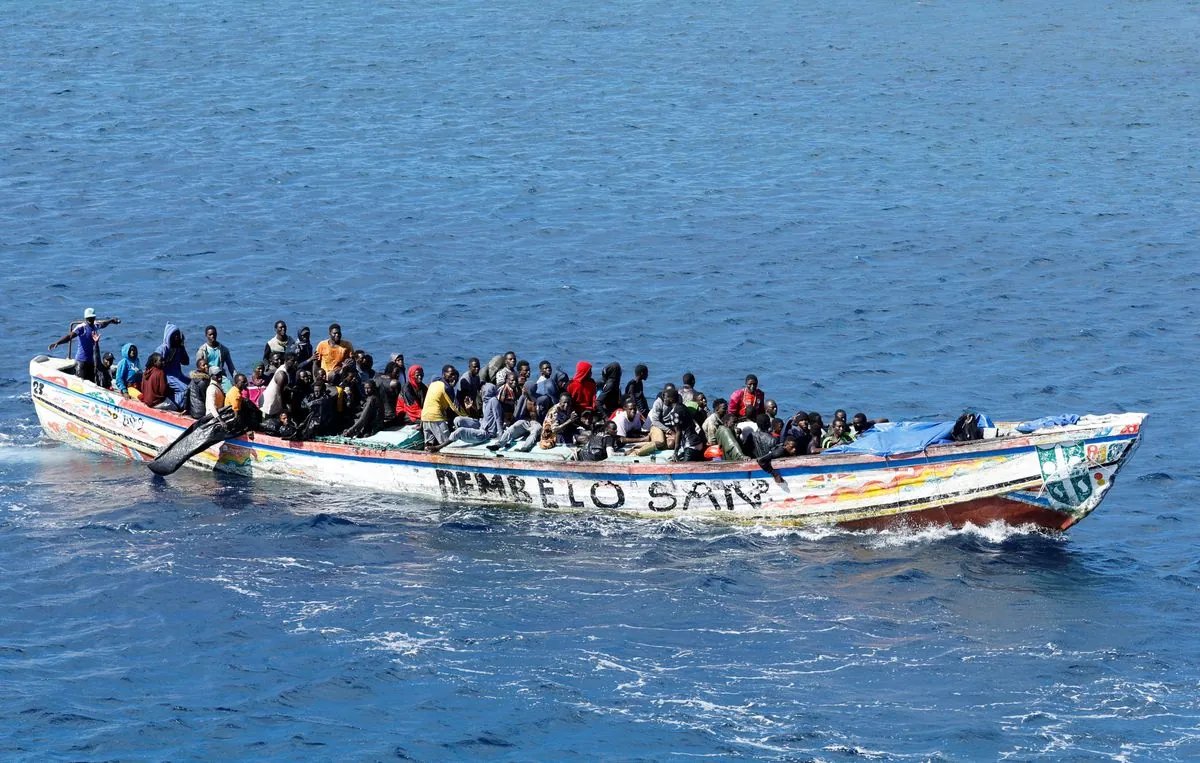The Canary Islands, an autonomous community of Spain located in the Atlantic Ocean, are facing an escalating migrant crisis. Recent events have highlighted the perilous nature of sea crossings from West Africa to this archipelago, situated approximately 100 kilometers west of Morocco.
On September 29, 2024, two boats carrying migrants reached the Canary Islands. One vessel, transporting 81 individuals, arrived at Tenerife, the largest and most populous island of the archipelago. Emergency services reported that at least one migrant required hospitalization. Concurrently, another boat reached Fuerteventura, the second-largest island. A third vessel, carrying around 80 migrants, was approaching El Hierro, the smallest of the seven main islands that comprise the Canaries.
These arrivals followed a tragic incident that occurred over the weekend of September 28-29, 2024. A migrant boat sank, resulting in at least nine fatalities and leaving 48 individuals missing, including a minor. Rescue services managed to save 27 out of the 84 migrants who were attempting to reach Spanish shores from West Africa.
The Canary Islands have been grappling with illegal immigration challenges for decades. The archipelago's unique position off the northwest coast of Africa has made it a target for those seeking entry into Europe. Between January 1 and September 15, 2024, the number of migrants crossing to the Canary Islands surged by 85%, reaching 26,758 individuals. This increase contrasts with the declining migrant flow along the central and western Mediterranean routes from North Africa, according to EU Frontex border agency data.
Fernando Clavijo, the regional president of the Canary Islands, has called for immediate action from mainland Spain and the European Union to address this crisis. He emphasized the urgent need for an agreement to manage the situation effectively. The rising number of migrants is attributed to extreme poverty and political instability in Africa's Sahel region, as well as environmental factors such as calm seas and gentle winds associated with late summer in the Atlantic Ocean.
The surge in arrivals is causing political tensions within Spain, as mainland regions resist calls to accept migrants from the Canary Islands. Earlier in 2024, Clavijo projected that 70,000 migrants could reach the archipelago by the end of the year, nearly doubling the record 39,910 arrivals in 2023.
The Canary Islands, known for their unique ecosystem, volcanic origin, and rich cultural heritage, have a complex history intertwined with maritime trade and exploration. The archipelago played a crucial role in European exploration of the Americas and has since developed into a popular tourist destination with a economy primarily based on tourism and agriculture.
Despite the challenges posed by the current migrant crisis, the Canary Islands continue to work on various development projects, including renewable energy initiatives, particularly in wind power. The islands are also home to several UNESCO World Heritage Sites, showcasing their historical and natural significance.
As the search continues for those missing from the recent shipwreck, the incident serves as a stark reminder of the dangers faced by migrants attempting to reach European shores. In the roughly 30-year history of migrant crossings from West Africa to the Canaries, the deadliest recorded shipwreck occurred in 2009 off the coast of Lanzarote, claiming 25 lives.
The ongoing situation underscores the need for comprehensive and collaborative approaches to address the complex issues surrounding migration, balancing humanitarian concerns with border management and regional stability.
[[Fernando Clavijo, Canary Islands' Regional President]]
"This situation sadly should push us all to immediately and urgently seek an agreement that allows us to deal with this phenomenon."
